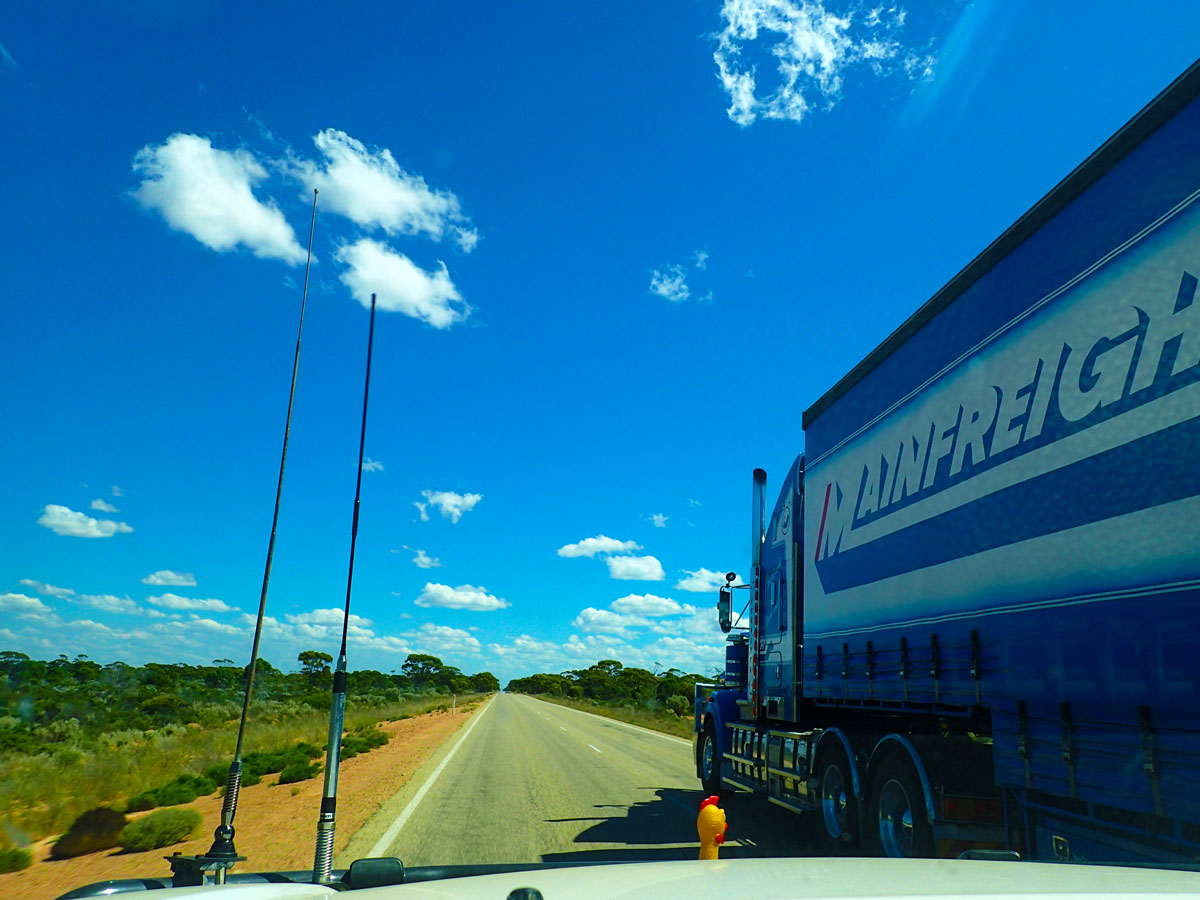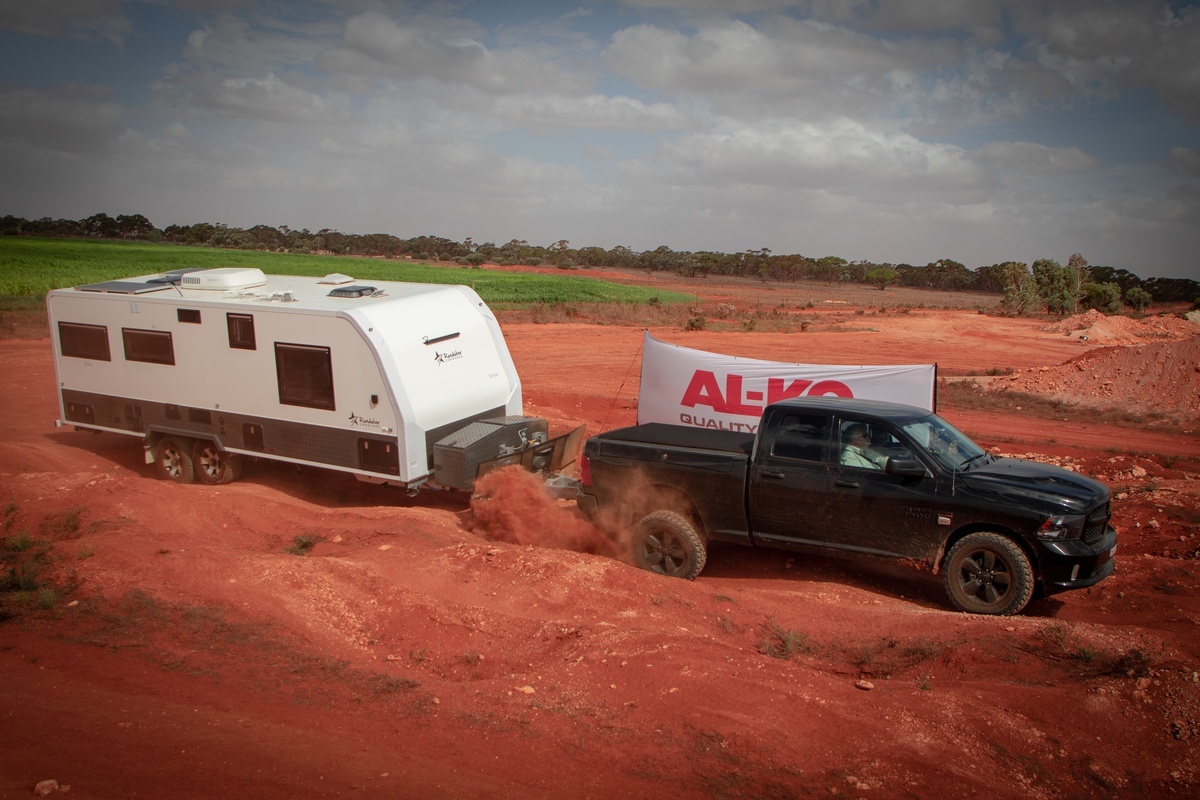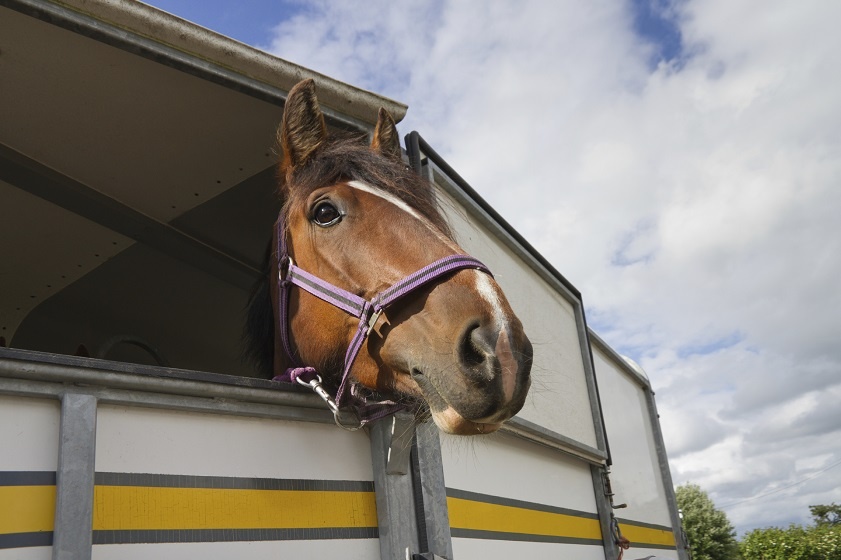When travelling through outback Australia it’s very common to come across large trucks or road trains delivering goods across the country. Here’s your guide on what to do when large trucks overtake.
Tune Into Channel 40
The CB has come in handy to give us warning for approaching ‘wide loads’. On occasion we have received fair warning on the truck’s width, which helped us determine if we need to pull off the bitumen.
When Large Trucks Overtake
Heavy vehicles are large, slow and not very manoeuvrable. But this doesn’t stop them from needing to overtake caravans. If one’s coming up behind us there are a few things we do:
Monitor our speed
When a truck approaches to overtake, we maintain our speed and position on the road until they start to overtake. Sometimes we have needed to gently ease off the accelerator until the truck has passed to give them a chance to return to the left hand lane. Once they’re passed we return to a safe travelling speed.
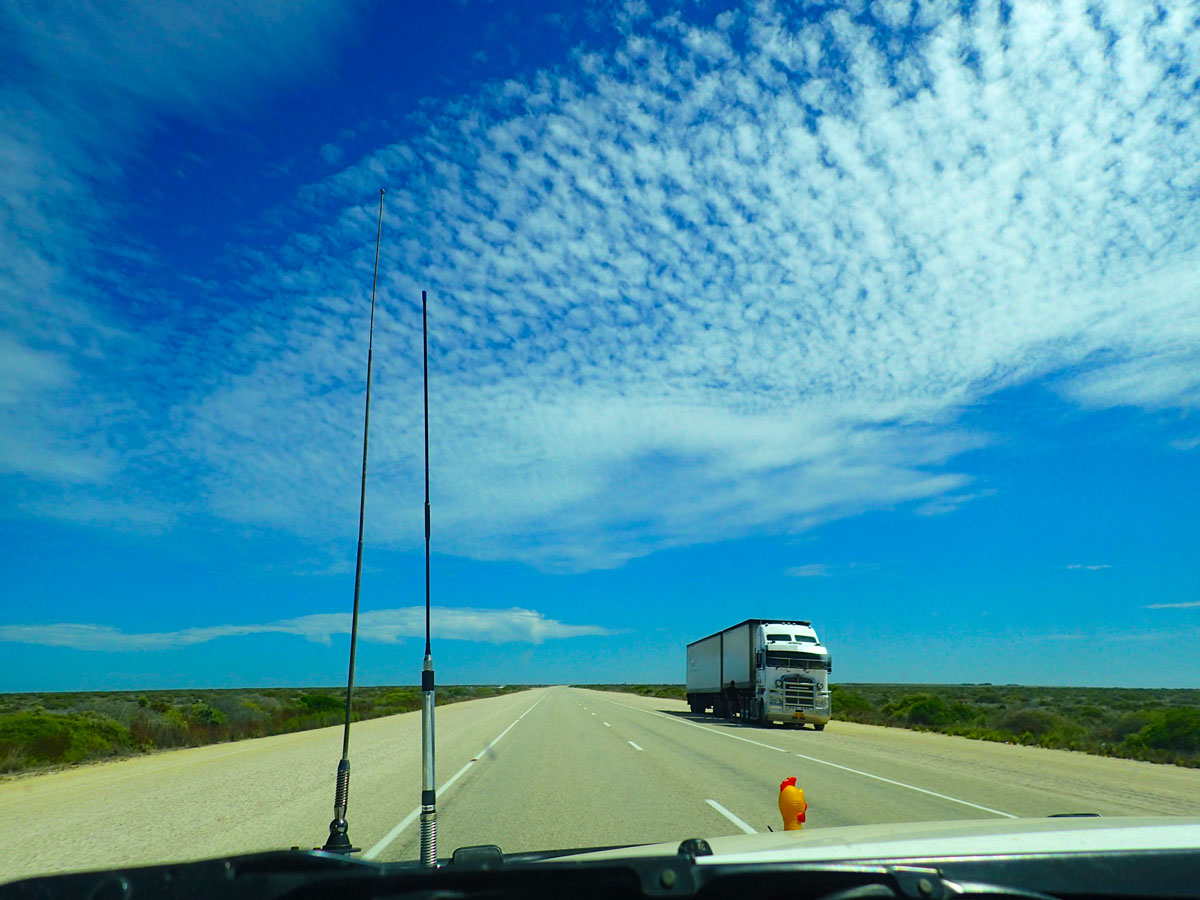
This is important because very heavy road trains can’t accelerate faster due to their mass and speed limiting. So if they’re about to pass us, we make it as easy as possible for them to do so.
According to truckies we’ve chatted to on our journey, accidents are often caused when caravans accelerate from 85-90km/hr to 100km or more once an overtaking lane is reached, only to slow down again once the passing opportunity has passed.
To us, this mentality doesn’t make sense because a truck or road train is far safer in front of you than right behind you. So we watch our speed and if a truck catches up we maintain that speed to allow them to safely overtake when the time is right.
Our Advice: if you can’t see the truck driver’s mirrors, the truck driver can’t see you. Tailgating a truck is never a good idea, mainly because you won’t be able to see what’s ahead and you want to avoid any debris thrown up from under their tyres. Travel at a safe distance.
Oncoming Trucks And Narrow Roads
We’ve seen road trains more than 50 metres long (the equivalent to 10 cars in length!) and many that are carting wide loads, occupying most of the lane. Therefore, as an approaching vehicle, we need to create a buffer zone by taking note of our position on the road and not travelling too close to the centre line.
On narrow country roads we’ve sometimes needed to put our left-hand wheels off the bitumen when a truck comes towards us.
When driving along the single bitumen road of Savannah Way in the heart of the Queensland outback we didn’t hesitate to get off the road altogether to let oncoming trucks pass.
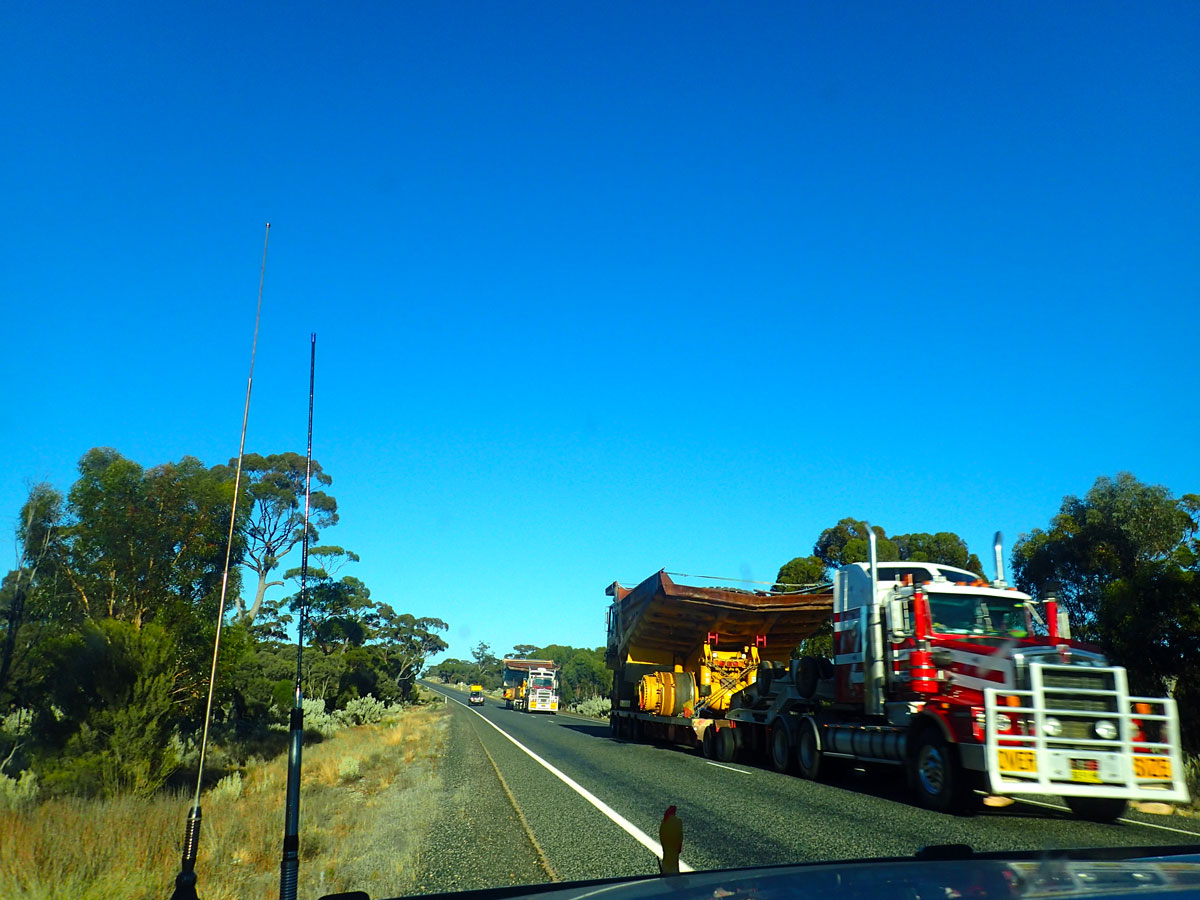
Our Advice: Allow time to stop safely and be prepared to get off the road.
By applying some careful driving precautions such as slowing down and monitoring our speed, we’ve stayed safe while sharing the road with large trucks and road trains on our journey around Australia.
In their next article, the Young Nomads share their trip notes for one of Australia’s most iconic drives – The Nullarbor Plain Crossing.
Drew and Court are a Melbourne couple who are travelling around Australia for the next 10 months. They’re writing about their experiences for Without a Hitch, giving us the real story of life on the road.

